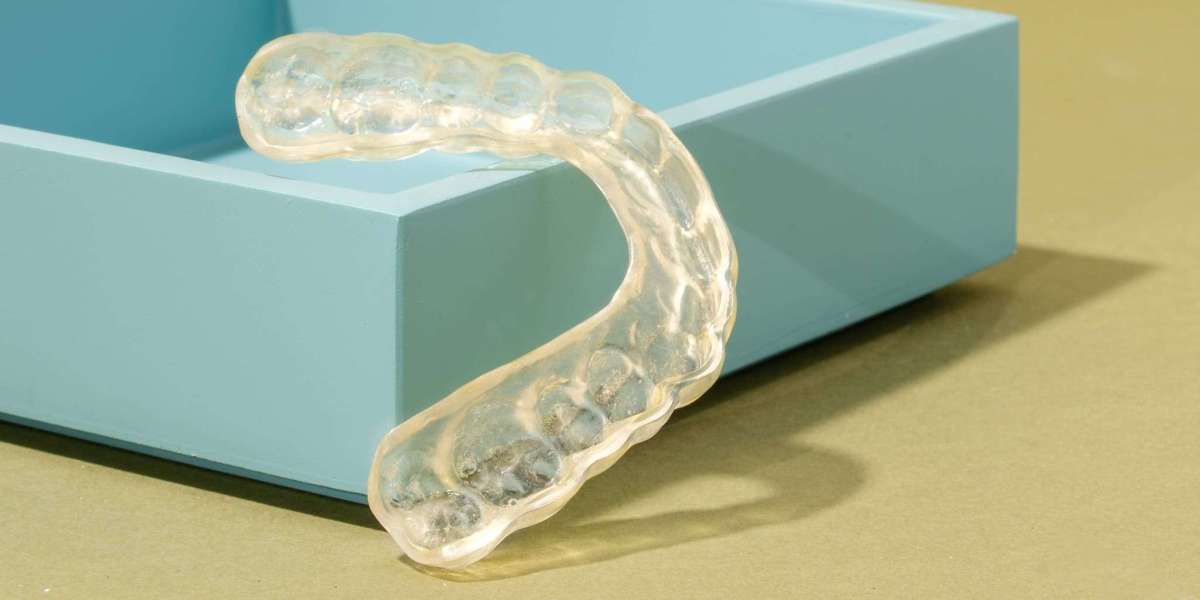If you’re dealing with bruxism (teeth grinding), jaw pain, or TMJ disorders, you may be exploring treatment options such as a Night Guard Splint in Dubai. Dental professionals often recommend night guard splints to protect your teeth and jaw during sleep. But not all splints are created equal. Understanding the different types of night guard splints available can help you choose the right one for your condition—while also improving your overall oral health. In this article, we’ll break down each type and explain how they contribute to long-term dental wellness.
Soft Night Guard Splints:
Soft night guard splints are made from pliable, rubber-like materials and are typically used for mild cases of bruxism. These guards provide cushioning between the upper and lower teeth and are more comfortable for first-time users. However, they tend to wear down faster and are not ideal for heavy grinders.
Best for light teeth grinders
Most affordable option
Easy to adapt to for new users
Less durable compared to hard types
Soft splints are commonly sold over the counter, but for best results, consider a custom-fitted version from a dental clinic in Dubai.
Hard Acrylic Night Guard Splints:
Hard acrylic splints are constructed from rigid plastic and offer high durability. These are ideal for patients with severe grinding habits or diagnosed TMJ disorders. They are typically custom-made and provide excellent protection by evenly distributing bite pressure.
Best suited for severe bruxism or TMJ
Long-lasting and durable
Helps reposition the jaw if needed
Requires a precise custom fit
A Night Guard Splint in Dubai made from hard acrylic ensures maximum protection and longevity, particularly for those with intense nighttime jaw activity.
Dual-Laminate Night Guard Splints:
This type of splint features a soft inner layer for comfort and a hard outer shell for durability. Dual-laminate night guards strike a balance between comfort and strength, making them a popular choice for moderate grinders.
Combines comfort and toughness
Custom-fitted for optimal support
Typically lasts longer than soft guards
Ideal for moderate to severe grinding
They are often recommended by dentists for individuals who find hard acrylic too rigid but need more support than a soft guard provides.
Over-the-Counter Night Guards:
Over-the-counter (OTC) night guards are mass-produced and typically come in a boil-and-bite format, allowing some customization. While they are more affordable and easily accessible, they may not provide the same level of protection or fit as a custom-made guard.
Budget-friendly and convenient
Offers limited fit customization
Less effective for serious grinding
Can feel bulky or uncomfortable
Using an OTC splint may offer short-term relief, but for ongoing protection and improved oral health, custom guards are a superior choice.
Custom-Fit Night Guard Splints:
Custom night guards are made using digital impressions or molds of your teeth, ensuring a precise fit. These guards are tailored to your bite and specific needs, offering superior comfort and effectiveness. They are available in various materials depending on your condition.
Tailored to your dental anatomy
Maximizes comfort and retention
Most effective at preventing tooth wear
Reduces jaw pain and tension headaches
A custom Night Guard Splint in Dubai designed by a professional will ensure the most therapeutic results for your oral health concerns.
Daytime vs. Nighttime Splints:
While most people associate night guard splints with nighttime use, daytime splints are also available. These are typically smaller and less bulky, allowing you to wear them discreetly during the day if you experience clenching or jaw pain during waking hours.
Daytime splints help manage daytime bruxism
Nighttime splints focus on overnight protection
Both may be used in severe TMJ cases
Can be made from hard or dual-laminate materials
Your dentist can determine which type is best based on your symptoms and daily habits.
Impact of Splints on Overall Oral Health:
Using the right type of night guard splint not only prevents damage but also promotes healthier teeth and gums. Here’s how night guard splints support oral health:
Prevent enamel erosion caused by grinding
Reduce risk of cracked or broken teeth
Minimize jaw joint inflammation
Improve bite alignment in some cases
Help decrease chronic headaches linked to bruxism
Wearing a splint regularly can spare you from costly dental repairs and contribute to long-term oral stability.
Maintenance and Longevity of Each Type:
Each type of night guard requires different care routines and has varying lifespans. Here’s what to expect:
Soft splints: Last 6 months to 1 year with daily use
Hard splints: Can last 3 to 5 years if well-maintained
Dual-laminate: Typically last around 1.5 to 2 years
Custom splints: Offer better longevity and hygiene resistance
Cleaning your splint daily and storing it in a ventilated case will extend its life and effectiveness.
Final Thoughts:
Understanding the different types of night guard splints is essential for selecting the one that best suits your needs. Whether you opt for a soft guard for minor grinding or a hard acrylic splint for TMJ support, each type offers unique benefits. Choosing a high-quality Night Guard Splint in Dubai from a reputable dental clinic ensures optimal fit, comfort, and protection. When worn consistently and maintained properly, night guard splints can significantly improve your overall oral health—preventing damage, alleviating pain, and contributing to better sleep and well-being.



